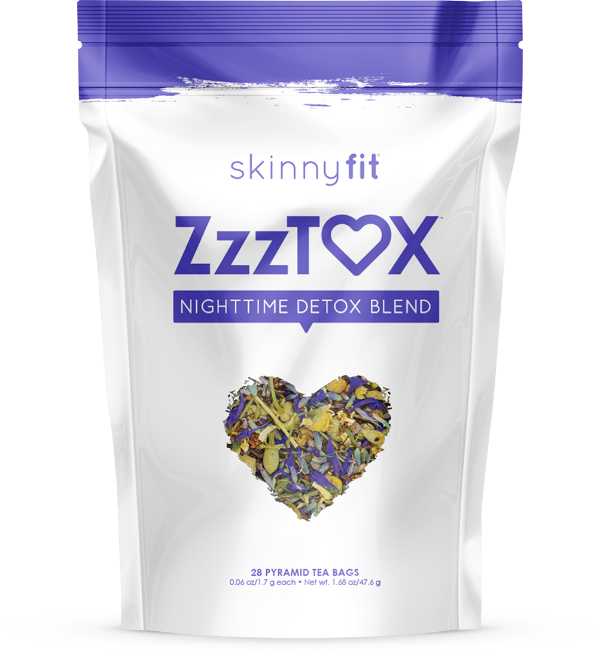“Don’t worry, be happy,” sang Bobby McFerrin in a little Caribbean tune through my dorm-room speaker. In college, I was convinced the secret to how to live a stress-free life was a balanced diet of gratitude and top ramen, with some “Two Buck Chuck” to really keep spirits lifted. These days, I’m still convinced that’s a recipe for stress-free living, if only there was a way to break through the stress of, well… stress.
If financial, political, and medical concerns raise your blood pressure, you’re not alone. Stress affects everyone. But more Americans are living with elevated stress than ever before, with 80% saying Covid-19 is a significant source of stress. [1]
So today, I want to share facts about stress and substantiated stress-reduction techniques that can help you stress less. And the best part is, you can start immediately.
But first, there’s a few things you need to know about stress before you can master it.
What is stress?
Knowing how to live a stress-free life starts with understanding what stress actually is.
Stress is a hormonal response to demand. Passing a test, speeding on the freeway, going on a date, being chased by a lion, jumping off the diving board, deep existential contemplation, losing a job, losing a parent, a lingering animated ellipsis in a text message, even staying up all night to meet a deadline for a blog about stress… are all demands placed on us, demands that trigger some form of stress.
Stress is natural, even necessary
Not all stress is bad. Eustress, AKA “the good stress,” is a driver of positive responses to stressors, such as energy, focus, and adrenaline—what you feel when we’re nervous, excited, or mobilized. [2] And while it doesn’t mean stress-free living, healthy amounts of eustress can push you to make important decisions to achieve something better. This sort of stress is very important. Eustress can motivate you to crush an interview, propose to your partner, outrun a wild animal, or outrun “it” in a game of tag.
Too much “bad stress” can hurt your health
But when you think about stress, you typically think about that nail-biting, anxiety-driving, patience-testing pit in your stomach. Whether short- or long-term, negative stress has negative effects on our physical and psychological health, and can result in: [3]
- Anxiety and/or depression
- Weight gain or weight loss (I know, right..!?)
- Concentration difficulty
- Fatigue or weakness
- Headaches
- Heart issues
- Volatile moods
- Muscle aches
- Digestive issues
- Insomnia
- Choking feelings
- Hot flashes
- Dry throat
- Chest pain
- Restlessness
- Insecurity
- Agitation
- Lack of motivation
- Increased spending
- Sleep issues
- Laziness
- Sexual problems
- Teeth clenching
- Poor hygiene
- And the list goes on, and on, and on
What’s more, some studies even suggest—rather convincingly—a link between chronic stress and cancer. [4] And Harvard Medical School points out that long-term stress can rewire your brain, and even lead to Alzheimers and dimension. [5] 😳 If you weren’t concerned about stress before, now would be the perfect time to start planning out how to live a stress-free life.

What Causes Stress?
Demanding situations and pressures lead to stress. While positive stressors can evoke eustress, highly demanding situations can cause prolonged, negative stress that takes a toll on our physical, emotional, and mental wellbeing.
According to this year’s American Psychological Association annual review on stress, the most common causes of stress in the United States are: [6]
- Covid-19
- Our country’s future
- Money/Finances
- Work/Job
- Current political climate
- Violence & Crime
- Healthcare
Tips For Stress Free Living
Now let’s get to the marrow: How to live a stress-free life? The bad news: if you want your life to be the existential equivalent of a Jimmy Buffett song, you’re setting yourself up for disappointment. But the good news is that there are many stress-reduction techniques and life choices you can work toward that get you as mentally, emotionally, and physically close to stress-free living as possible. Here are a few.
1. Surround yourself with positive people
Chronic stress keeps you negatively “stuck.” Luckily, positivity is infectious. So surrounding yourself with positive individuals can have a lasting effect on your stress response, particularly if you’re prone to sweating the small stuff. You may find they help you cope with stress in healthier ways, calm you when you’re on edge, and provide a beneficial outlet.
2. Help others see things more positively
Help yourself by helping others. A lot of the “stress-free living” we see in others is actually dedicated work. And nowhere do your efforts for self-improvement shine than when helping others. This can be as big as being there for a friend in need or simply being friendly to your grocery store clerk. One study found that connection to others was an important factor in well-being for women in high-stress jobs. [7]
3. Understand (and accept!) you can’t please everyone.
This one is difficult, especially if you’re a giver. The weight of wanting to please or help everyone can easily hold you back from stress-free living. This is because it mentally places you in a position of perpetual demand, i.e. the demand to please others. And what have we learned about demand? It creates stress. This doesn’t mean stifling your generosity is the answer to how to live a stress-free life; it means that you don’t always have to go above and beyond, especially if doing so leaves you worse for the wear. But if you’re constantly concerned about meeting unrealistic expectations of others… well, refer back to Tip #1.
4. Practice the power of saying no.
“The ability to say No is one of the most important skills one can have, particularly for givers,” explains Adam Grant, professor at UPenn and author of Give and Take. A big reason is because saying No allows you to create more time for yourself, your goals, and your agenda. It also helps you to prioritize your own goals instead of prioritizing others. You know the saying, “You can’t pour from an empty cup”? Well, it’s true. And learning to say No helps you fill your own cup first.
5. Strive for work-life balance
Speaking of time, when it’s in high-demand, your stress response hyper-accentuates your short supply, making stress-free living seem outright impossible. Planning and working toward a meaningful balance between your personal and professional life is one of the top stress-reducing techniques, and indicated by the Mayo Clinic.
6. Practice & pursue self-care & self-awareness
Self-care and self-awareness too often get passed off as “woo-woo”, however studies examining stress show that practicing self-care and educating yourself on about self-awareness and self-care, particularly in regards to using it to address stressors, can lead to greater well-being and give you guidance to how to live a stress-free life. [7]
7. Spend (a lot) more time in nature
A rising tide of scientific studies is pointing to a reality many of us already know, but scientists are just now getting around to proving: Nature is a really peaceful place. In fact, one study comparing two biomarkers, amylase and cortisol (the stress hormone), in subjects in three locations: wilderness, urban park, and an urban building. Naturally, stress levels were significantly lower in subjects in the natural environment. [8] What’s more, the quality of the natural experience made as much a difference as the quantity of time spent in nature. [9] Even if you can’t go all Louis & Clark in the wilderness, spend time in parks and other green spaces; even a 20-minute walk in the park can “step” you toward how to live a stress free life. [10]

Stress Reduction Tips
Even if you somehow manage to achieve long-term stress-free living, you’ll still have moments of stress. Try practicing these daily techniques as part of your long-term strategy for how to live a stress-free life.
- Unplug. Screen time, particularly social media, evokes your body’s fight-or-flight response, keeping your cells in a state of prolonged stress, and making you more susceptible to the physical and mental health issues, and is linked to lower quality of life. [11, 12]
- Get Physical. Exercise is a powerful stress-reduction technique, helping to lift and balance your mood, improve sleep patterns, and increase self-esteem. [13]
- Get “Physical.” 😉 An active sex life is vital to stress-free living. Healthy, consensual sex helps you reduce stress through the release of endorphins and other mood-boosting hormones, and can even prevent spikes in blood pressure and stress response. [1] And being good exercise, sex can help you burn calories and tone your body.
- Meditate. Psychiatric studies now confirm what zen buddhists and mind-body ascetics have long known, that meditation is one of the most powerful stress-reduction techniques. It can help ease your mind in the moment. But, prolonged practice can have prolonged benefits on stress and anxiety disorders. [14] That’s a massive step toward stress-free living.
- Drink Soothing, Caffeine-Free Tea. I was researching how to live a stress free life while drinking a cup of tea, when I came across a study correlating stress reduction to tea. Drinking tea can reduce levels of post-task cortisol, the stress hormone. Decaffeinated teas, such as green tea and other herbals, also help balance sleep patterns, thanks to reduced caffeine consumption. SkinnyFit ZzzTox is a caffeine-free bedtime tea blend of some of the most relaxing types of tea grown on earth, such as peppermint, lemon balm, and chamomile. What’s more, almost all of the ZzzTox ingredients are anti-inflammatories or antioxidants, which help reduce oxidative stress to your cells. So even your cells can chill! [15, 16]
- Crack A Laugh. Laughing lightens our load, and even though stress can dissuade us from seeking out smiles, laughter is shown to have powerful psychological benefits with no cost, downtime, or negative side effects. 😜 [17]
- Talk To Someone. Expressing your concerns in a serious yet vulnerable way to friends, family or a therapist, opens the door to perspectives you may never have realized could help. If stress is really getting to you, I strongly recommend seeking a therapist. There’s nothing shameful about it, and a good therapist can help you work things out and figure out how to live a stress free life. Need a good starting point? Check out the BetterHelp app or Psychology Today’s Find a Therapist feature.
The Bottom Line
There’s so much more to stress than what we’ve just covered, and most of it is experiential. But if you’re committed to finding out how to live a stress-free life, understanding stress triggers and causes, symptoms, and effective short- and long-term coping strategies is your best bet.
Mentioned In This Post
SkinnyFit ZzzTox Tea
Stress less, sleep tight, and detox 24/7 with caffeine-free SkinnyFit ZzzTox! Our all-natural nighttime tea helps you slim down while enhancing your quality of sleep.

